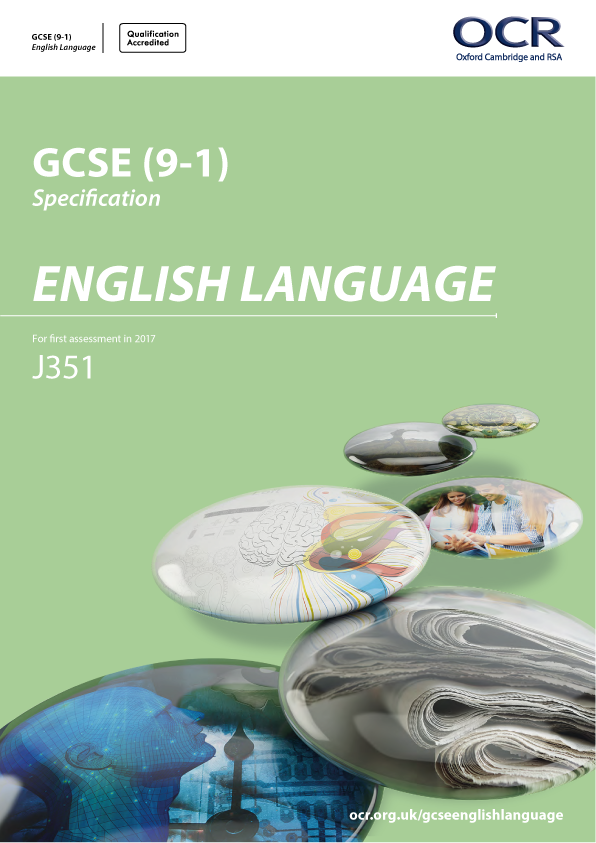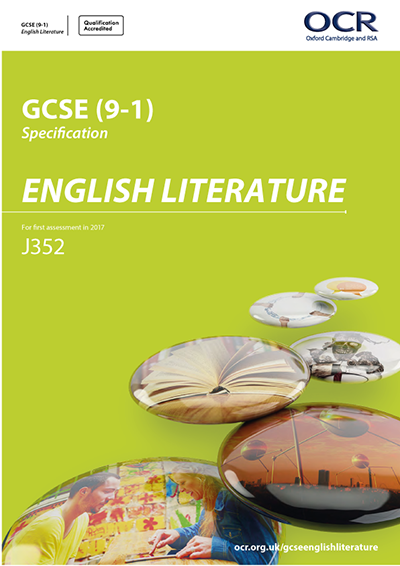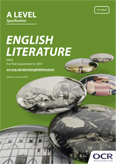Key Stage 3
Key Stage 4
Key Stage 5
NATIONAL CURRICULUM
The Ecclesbourne School follows the 3 Year National Curriculum
The overarching aim for English in the national curriculum is to promote high standards of language and literacy by equipping pupils with a strong command of the spoken and written word, and to develop their love of literature through widespread reading for enjoyment. The national curriculum for English aims to ensure that all pupils:
- read easily, fluently and with good understanding
- develop the habit of reading widely and often, for both pleasure and information
- acquire a wide vocabulary, an understanding of grammar and knowledge of linguistic conventions for reading, writing and spoken language
- appreciate our rich and varied literary heritage
- write clearly, accurately and coherently, adapting their language and style in and for a range of contexts, purposes and audiences
- use discussion in order to learn; they should be able to elaborate and explain clearly their understanding and ideas
- are competent in the arts of speaking and listening, making formal presentations, demonstrating to others and participating in debate.
Reading
Pupils should be taught to:
- develop an appreciation and love of reading, and read increasingly challenging material independently through:
- reading a wide range of fiction and non-fiction, including in particular whole books, short stories, poems and plays with a wide coverage of genres, historical periods, forms and authors, including high-quality works from English literature, both pre-1914 and contemporary, including prose, poetry and drama; Shakespeare (2 plays) and seminal world literature
- choosing and reading books independently for challenge, interest and enjoyment
- rereading books encountered earlier to increase familiarity with them and provide a basis for making comparisons
- understand increasingly challenging texts through:
- learning new vocabulary, relating it explicitly to known vocabulary and understanding it with the help of context and dictionaries
- making inferences and referring to evidence in the text
- knowing the purpose, audience for and context of the writing and drawing on this knowledge to support comprehension
- checking their understanding to make sure that what they have read makes sense
- read critically through:
- knowing how language, including figurative language, vocabulary choice, grammar, text structure and organisational features, presents meaning
- recognising a range of poetic conventions and understanding how these have been used
- studying setting, plot, and characterisation, and the effects of these
- understanding how the work of dramatists is communicated effectively through performance and how alternative staging allows for different interpretations of a play
- making critical comparisons across texts
- studying a range of authors, including at least 2 authors in depth each year
Writing
Pupils should be taught to:
- write accurately, fluently, effectively and at length for pleasure and information through:
- writing for a wide range of purposes and audiences, including: well-structured formal expository and narrative essays; stories, scripts, poetry and other imaginative writing; notes and polished scripts for talks and presentations and a range of other narrative and non-narrative texts, including arguments, and personal and formal letters
- summarising and organising material, and supporting ideas and arguments with any necessary factual detail
- applying their growing knowledge of vocabulary, grammar and text structure to their writing and selecting the appropriate form
- drawing on knowledge of literary and rhetorical devices from their reading and listening to enhance the impact of their writing
- plan, draft, edit and proofread through:
- considering how their writing reflects the audiences and purposes for which it was intended
- amending the vocabulary, grammar and structure of their writing to improve its coherence and overall effectiveness
- paying attention to accurate grammar, punctuation and spelling; applying the spelling patterns and rules set out in English appendix 1 to the key stage 1 and 2 programmes of study for English
Grammar and vocabulary
Pupils should be taught to:
- consolidate and build on their knowledge of grammar and vocabulary through:
- extending and applying the grammatical knowledge set out in English appendix 2 to the key stage 1 and 2 programmes of study to analyse more challenging texts
- studying the effectiveness and impact of the grammatical features of the texts they read
- drawing on new vocabulary and grammatical constructions from their reading and listening, and using these consciously in their writing and speech to achieve particular effects
- knowing and understanding the differences between spoken and written language, including differences associated with formal and informal registers, and between Standard English and other varieties of English
- using Standard English confidently in their own writing and speech
- discussing reading, writing and spoken language with precise and confident use of linguistic and literary terminology*
*Teachers should refer to the glossary that accompanies the programmes of study for English for their own information on the range of terms used within the programmes of study as a whole.
Spoken English
Pupils should be taught to:
- speak confidently and effectively, including through:
- using Standard English confidently in a range of formal and informal contexts, including classroom discussion
- giving short speeches and presentations, expressing their own ideas and keeping to the point
- participating in formal debates and structured discussions, summarising and/or building on what has been said
- improvising, rehearsing and performing play scripts and poetry in order to generate languages and discuss language use and meaning, using role, intonation, tone, volume, mood, silence, stillness and action to add impact
CURRICULUM INTENT
English has a pre-eminent place in education and in society. A high-quality education in English will teach pupils to speak and write fluently so that they can communicate their ideas and emotions to others and through their reading and listening, others can communicate with them. Through reading in particular, pupils have a chance to develop culturally, emotionally, intellectually, socially and spiritually. Literature, especially, plays a key role in such development. Reading also enables pupils both to acquire knowledge and to build on what they already know. All the skills of language are essential to participating fully as a member of society; pupils, therefore, who do not learn to speak, read and write fluently and confidently are effectively disenfranchised.
COURSE ASSESSMENT
| GRADE | ASSESSMENT CRITERIA |
|---|---|
| 9 | Achieved when all of the criteria mentioned below, specific to a given task, have been met. |
| 8 | Students deliberately adapt writing form to position the reader, showing a sophisticated control of purpose and effect; ambitiously select and deploy tone, style and register to enhance the purpose of the task; skilfully control overall structure achieving a range of effects; sustain critical response to texts with perceptive understanding; use interwoven quotes that are precise and pertinent; use a detailed analysis of language and comment on structure and form; employ a consistent use of relevant terminology; demonstrate a sensitive understanding of influence of contexts. |
| 7 | Students confidently adapt writing with punctuation, grammar and structure used to create deliberate effects; sustain use of tone, style and register to fulfil the purpose of the task; control overall structure with paragraphs and grammatical features used for cohesion and to create particular effects; develop convincing critical response to texts, with some insightful understanding; use well selected and integrated quotes and references; demonstrate thoughtful examination of use of language, form and structure, good use of terminology, and convincing understanding of significance of contexts. |
| 6 | Students fully control writing with tone, style and register chosen to match the task; adapt form to show clear understanding of purpose and audience; show a well-managed overall structure with paragraphs and grammatical features used to support coherence and cohesion, and sometimes for effect; detail responses to texts showing some critical style; use relevant references and quotes are used to support ideas; show some analytical comment on language, form and structure; have a competent use of terminology and clear understanding of contexts. |
| 5 | Students vary sentence types and structures and use vocabulary appropriate to purpose and effect; produce coherent, well-structured and purposeful texts; spell, punctuates and uses grammar accurately with occasional errors; make credible links and comparisons between texts; supports understanding with apt references to texts, informed by wider reading; analyse and evaluate relevant aspects of language, grammar and structure; use relevant terminology with understanding; makes relevant comments on significance of contexts. |
| 4 | Students use punctuation accurately with occasional errors in ambitious structures; employ imaginative treatment of appropriate material in a variety of forms adapted to purpose and audience; use varied range of vocabulary, often ambitious, accurately and for effect; use paragraphing to vary structure and effect; show understanding through detailed response; us some relevant textual references and quotations; demonstrate reasonable exploration of language, form and structure; show some use of critical terminology; demonstrate an awareness of significance of context. |
| 3 | Students use full range of punctuation accurately to demarcate sentences, including speech punctuation; develop relevant ideas and material with some imaginative detail; use a reasonably wide vocabulary, some of which is chosen for effect; structure material clearly with paragraphing used to support ideas and purpose; use comments to make inference and deduction based on textual evidence; clearly identify the main purpose and viewpoint of a text with some explanation; identify various features of the writer’s use of language, with some explanation; recognise significant details and implicit meaning in spoken language; shape talk in deliberate ways for clarity. Orally expressing relevant ideas and feelings, with some detail; sustains roles and responsibilities with independence in pairs or groups, sometimes shaping the direction of talk through effective contribution. |
| 2 | Students use some variety in length, structure or subject in sentences with punctuation between sentences usually used accurately; have relevant and appropriate ideas and content with some detailed development; use some expansion of vocabulary to match topic and correct spelling of common words; use paragraphing to organise ideas in a logical way; comment to make inferences based on evidence from different points in the text; show awareness of a writer’s viewpoint and makes simple comments on the overall effect on the reader; use some basic features of the writer’s use of language and structure identified with simple comment; show understanding of how and why language choices vary in their own and others’ talk in different situations; takes on straightforward roles and responsibilities in pairs or groups. |
| 1 | Students use straightforward sentence structures with full stops, capital letters and commas sometimes used accurately; attempt a style of writing that is appropriate to the task and includes appropriate ideas and content; use simple vocabulary and spells simple words correctly; attempt to organise ideas in a logical way; have straightforward understanding of a text, and make simple inferences from a single point in the text; have an ability to understand the main purpose of the text; expresses a personal response to a text; recognise and comment on different ways that meaning can be expressed in their own and others’ talk; attempt different roles and responsibilities when speaking in pairs or groups. |
Contact: Mrs S. SMcCammon
If you have any questions or queries relating to the English curriculum please email [email protected] for more information.
COURSE OVERVIEW
The English course followed by all students in Years 10 and 11 consists of two separately certificated subjects: ‘English Language’ and ‘English Literature’. All students will normally be entered for both and receive two GCSE grades. The syllabus has changed. There is no longer any coursework element and no exams may be taken early. Instead, there will be exams at the end of Year 11, two in English Language and two in English Literature. All students take the same exam; there is no ‘Higher’ or ‘Foundation’ tier.
The aims of the English Language specification focus on a range of skills in reading and writing, by developing accurate, appropriate and effective communication. Analytical and evaluative reading is encouraged and students will be required to comment on both Nineteenth and Twentieth Century texts. A range of skills for writing both creatively and factually will be developed. Students are also encouraged to develop their abilities as speakers and listeners via a range of informal oral activities and one formal assessment but these will not contribute to their overall mark in English Language.
English Language Course
The English Literature specification provides students with many opportunities to study a range of drama, poetry and prose. It encourages students to develop their ability to read with discrimination and to study texts written before the Twentieth Century as well as some written after the year 2000. Social, historical and cultural contexts and influences are considered as part of the study of texts. Students are no longer allowed to take texts into the exams and they are required to learn some quotations from each text.
ASSESSMENT CRITERIA
| Paper 1 Communicating Information and Ideas | 80 Marks 2 hour written paper 50% of total GCSE |
| Paper 2 Exploring effects and impact | 80 Marks 2 hour written paper 50% of total GCSE |
English Literature Course
The study of literature forms a basis for much of the work within both subjects and students will be required to compare passages from a studied text with passages from previously unseen texts.
ASSESSMENT CRITERIA
| Paper 1 Exploring modern and literary heritage texts | 80 Marks 2 hour written paper 50% of total GCSE |
| Paper 2 Exploring poetry and Shakespeare | 80 Marks 2 hour written paper 50% of total GCSE |
WHERE NEXT?
A good grade in English Language is a pre-requisite for any Level 3 course including moving onto the Sixth Form. We also offer English Literature in Sixth Form.
Contact: Mrs S. SMcCammon
If you have any questions or queries relating to the English curriculum please email [email protected] for more information.
COURSE OVERVIEW
There are two examinations for A Level English Literature. For the first examination students will work on either The Tempest or Twelfth Night by Shakespeare, The Duchess of Malfi by John Webster and Paradise Lost Books 9 and 10 by John Milton.
The second examination involves the study of two texts for a comparative paper. We will be studying Dystopian fiction – The Handmaid’s Tale by Margaret Atwood and 1984 by George Orwell. For this paper students will also be expected to engage in their own independent reading within this genre.
There is also a coursework module which is worth 20% of the final grade. We will be studying and comparing The History Boys by Alan Bennett and The Prime of Miss Jean Brodie by Muriel Spark, in addition to this students will complete a shorter piece of coursework on Carol Ann Duffy’s The World’s Wife.
English Literature Course
ENTRY REQUIREMENTS:
5 GCSES 4-9 or A*-C to include Maths and English Lang and Lit Grade 5
WHERE CAN ENGLISH LITERATURE TAKE ME?
English Literature is a good route to a wide range of HE courses as the skills in essay writing and analysis which we teach will be required in most subjects. Many graduates go on to work in Law, Marketing, Communication, Publishing, Journalism, Recruitment, Advertising, Media or Teaching.
ASSESSMENT
| A LEVEL | ASSESSMENT | % OF COURSE |
|---|---|---|
| Paper 1 | 2 hour 30 minute exam | 40% |
| Paper 2 | 2 hour 30 minute exam | 40% |
| Coursework | non exam assessed | 20% |






